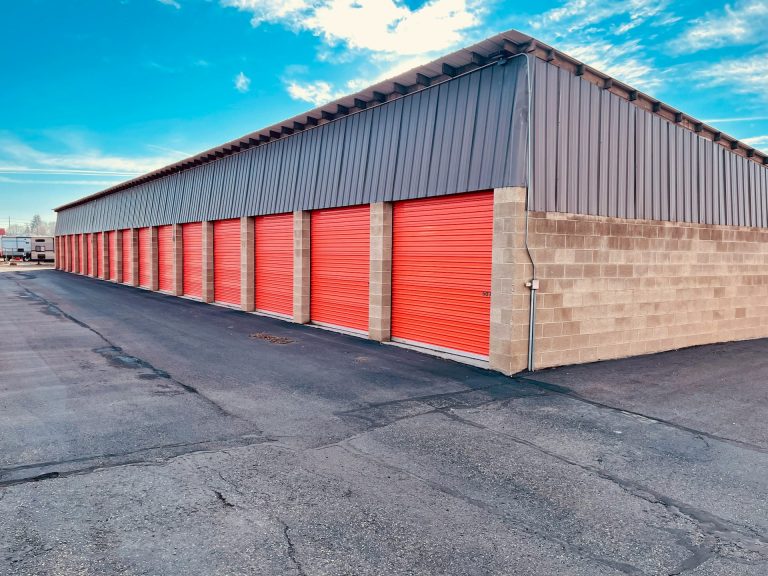What Zoning is Needed for RV Storage: Site Selection to Operational Strategies
Wondering what kind of zoning you need for storing your RV? Whether you’re new to RVing or a seasoned traveler, figuring out the zoning rules for RV storage, land use, and single family homes can be confusing. On one hand, you love the freedom of hitting the road with your RV. But on the other hand, finding a good spot to store it when you’re not using it can be tough because of the different zoning rules.
We’ll explore different types of zoning codes and commercial zoning that permit RV parking and discuss how to navigate local ordinances effectively. By the end, you’ll grasp a clearer picture of the diverse zoning considerations essential for secure and compliant commercial RV storage options.
Zoning Basics for RV Storage
Understanding Regulations
Different states have different regulations for RV storage zoning. It’s crucial to understand local zoning laws before establishing a commercial RV storage facility. Compliance with federal, state, and local regulations, zoning codes, and commercial use is essential for RV storage businesses to operate legally. For example, some areas may have restrictions on the size or height of structures in certain zoning codes.
Zoning laws can also dictate the types of security measures that must be in place at a commercial RV storage facility. Understanding these zoning codes and commercial regulations helps ensure that the business meets all necessary requirements and operates within the law.
Zoning Classifications
Zoning classifications play a vital role in determining where commercial RV storage facilities can be located. These classifications may include commercial, industrial, or mixed-use zoning codes. For instance, some areas may allow RV storage facilities only in industrial zones due to their large size and potential impact on surrounding areas.
Zoning ordinances often outline specific requirements for RV storage facilities regarding things like landscaping, lighting, and building design. By understanding these specifications based on zoning classifications, business owners can plan their facility’s layout accordingly while adhering to all legal guidelines.
Rezoning Process
The process of rezoning land for RV storage involves obtaining approval from local authorities after thorough consideration of community needs and concerns. This may require public hearings where community members provide input about how an RV storage facility could affect the area.
Understanding this process is vital because it allows business owners to navigate through the steps involved in seeking approval for rezoning effectively. The ability to address any potential issues raised during public hearings demonstrates a commitment to being a responsible member of the community.
Site Selection for RV Storage
Location Criteria
Proximity to major highways and thoroughfares is crucial for RV storage facilities. This ensures easy access for owners transporting their vehicles. Access to urban or suburban areas may impact the location criteria, as demand varies between these settings. For instance, an urban area might have higher demand due to limited space for RV parking in residential neighborhoods.
Considering the demand for RV storage in a particular area is essential when determining location criteria. Areas with a high concentration of RV enthusiasts or travelers are likely to have greater demand for storage facilities. This can be influenced by factors such as popular tourist destinations or outdoor recreational activities.
Accessibility Factors
Easy access to the facility and maneuverability within the premises are vital accessibility factors for RV storage facilities. Owners need ample space to navigate their large vehicles safely within the facility without any obstructions.
Adequate turning radius and clearance heights are critical considerations, ensuring that RVs can enter, exit, and move around the facility without any issues. These aspects contribute significantly to overall user experience and safety at the storage site.
Accessibility factors also encompass parking availability and traffic flow within the facility. It’s important that there is sufficient designated parking space available so that owners can easily park their vehicles without causing congestion or inconvenience to others using the facility.
Environmental Considerations
When establishing an RV storage facility, environmental impact assessments may be required based on local regulations and zoning laws. These assessments help identify potential environmental impacts associated with constructing and operating such a facility.
Mitigating potential environmental hazards such as runoff from washing RVs or pollution from vehicle exhausts is important in site selection. Implementing proper drainage systems and pollution control measures ensures that the surrounding environment remains unaffected by activities at the storage site.
Compliance with environmental regulations and sustainability practices is integral during all stages of development of an RV storage facility – from initial planning through construction up until ongoing operations.
Designing RV Storage Facilities
When designing RV storage facilities, security features play a crucial role in ensuring the safety and protection of the stored vehicles. Implementing advanced security systems is essential to provide customers with peace of mind regarding their valuable investments.
One fundamental security feature for RV storage facilities is the installation of surveillance cameras. These cameras monitor the premises 24/7, deterring potential intruders and providing evidence in case of any unauthorized access or incidents. Access control systems such as keypads or card readers contribute to enhancing security by restricting entry only to authorized individuals. This not only prevents theft and vandalism but also ensures that customers have exclusive access to their stored vehicles.
Perimeter fencing is another vital component of security features for RV storage facilities. A well-constructed fence acts as a physical barrier, preventing unauthorized entry and safeguarding the entire facility. Coupled with gated access controlled by individualized codes or keys, perimeter fencing adds an extra layer of protection against theft and unauthorized usage.
In addition to surveillance cameras and perimeter fencing, proper lighting throughout the facility is imperative for maintaining high levels of security. Well-lit premises not only deter criminal activities but also provide visibility during night-time visits by customers who may need to retrieve their vehicles after dark.
Legal Compliance and HOA Concerns
Navigating HOA Restrictions
Understanding homeowners’ association (HOA) restrictions is vital when considering locations within residential areas. Some HOAs may have specific rules against storing RVs on properties, while others might allow it under certain conditions. For example, an HOA may require that RV storage facilities be located behind the main property or have a maximum height restriction to maintain aesthetic appeal.
Navigating these restrictions might involve obtaining approval or waivers for establishing an RV storage facility within the community. This process could include submitting detailed plans for the facility’s design and operation, as well as addressing any concerns raised by the HOA board or members. It’s essential to engage in open communication with the HOA to understand their requirements and ensure compliance with their guidelines.
Compliance with HOA guidelines while developing an RV storage facility is crucial to avoid conflicts that could lead to legal action or fines. By proactively addressing any potential issues and securing necessary approvals, individuals can establish a positive relationship with their homeowners’ association while providing a valuable service to fellow residents.
Compliance Checklist
Creating a comprehensive compliance checklist is essential for ensuring adherence to all zoning and regulatory requirements related to RV storage facilities. This checklist should encompass all necessary permits, approvals, and documentation needed for operation. For instance, it should include obtaining zoning permits from local authorities, adhering to building codes for constructing the facility, acquiring environmental clearances if required, and securing business licenses.
Operational Strategies for RV Storage
Amenities Offered
Providing top-notch amenities is crucial. Offering services such as dump stations, wash bays, and air stations can significantly enhance the value proposition for customers. These facilities allow RV owners to maintain their vehicles conveniently on-site. For instance, having a dedicated area for dumping waste and refilling water tanks saves customers time and effort.
Moreover, additional services like valet parking or vehicle maintenance can set an RV storage facility apart from competitors. By offering these extra conveniences, businesses can attract more customers who seek comprehensive solutions for their recreational vehicles. This differentiation creates a competitive edge in the market while also enhancing customer satisfaction.
Incorporating amenities that prioritize customer convenience and comfort is essential for retaining clients. Facilities with comfortable waiting areas, clean restrooms, and easy access to storage spaces contribute to overall customer satisfaction. When clients feel valued and catered to at every step of their interaction with the facility, they are more likely to remain loyal patrons.
Technology Integration
Integrating technology into the operations of an RV storage business is paramount in today’s digital age. Implementing digital access control systems not only enhances security but also provides a convenient way for customers to access their stored vehicles without compromising safety.
Online booking platforms streamline the reservation process for both customers and staff members alike. This technology simplifies administrative tasks while offering convenience to clients who prefer making reservations online rather than through traditional methods.
Furthermore, utilizing technology for remote monitoring and management improves operational efficiency by allowing staff members to oversee the entire facility from a centralized location. It also contributes significantly towards enhancing security measures by enabling real-time surveillance of the premises.
Integrating technology solutions ultimately leads to improved customer experience through convenient access and communication channels between clients and the facility’s management team.
Insurance Coverage
Understanding insurance requirements is crucial when establishing an RV storage business due to potential liabilities associated with storing recreational vehicles on-site. Obtaining comprehensive insurance coverage protects against various risks such as theft, damage caused by natural disasters or accidents within the premises. Working closely with insurance providers specializing in recreational vehicle coverage ensures that businesses receive adequate protection tailored specifically towards this niche market segment.
Industry Overview and Demand Analysis
The industry of self-storage is constantly evolving, with trends shaping the way businesses operate. Adapting to these trends is crucial for long-term success. For instance, the increasing demand for climate-controlled units and the integration of mobile apps into storage services are influencing customer expectations. By staying informed about these trends, businesses can make proactive adjustments to meet changing market demands.
Moreover, the evolution of RV and boat storage facilities is driven by advancements in security technology and changes in consumer preferences. As more customers seek specialized services for their RVs and boats, storage providers must adapt to evolving needs. This ongoing evolution reflects the dynamic nature of this sector.
In response to self-storage industry trends, businesses need to align their strategies with customer expectations. For example, if climate-controlled units are gaining popularity among customers seeking RV storage solutions, providers should consider incorporating such offerings into their facilities. Similarly, as more consumers expect seamless experiences through mobile apps, integrating technology into the storage process becomes essential.
Furthermore, understanding how RV and boat storage has evolved over time allows businesses to tailor their services accordingly. With advancements in security technology ensuring better protection for valuable assets like RVs and boats, it’s vital for storage facilities to invest in state-of-the-art security systems that provide peace of mind to customers.
Feasibility and Profitability Considerations
Cost Analysis
Conducting a feasibility study is crucial when determining the zoning needed for RV storage. This study helps in evaluating the financial viability of establishing an RV storage facility. It involves analyzing various costs associated with the venture, such as land acquisition, construction expenses, and ongoing operational costs. By carefully assessing these factors, one can gain valuable insights into whether the project is financially feasible.
Conducting a thorough cost analysis allows potential investors to compare the projected revenue against the initial investment outlay. This comparison provides a clear understanding of whether the venture has the potential to be profitable in the long run. For instance, considering land acquisition costs alongside estimated revenue from leasing storage spaces helps in making informed decisions about profitability.
Revenue Streams
Diversifying revenue streams is essential for ensuring sustained profitability in RV storage businesses. Apart from offering standard storage services, providing add-on services like detailing or maintenance can generate additional income for the facility. These supplementary services not only enhance customer satisfaction but also contribute to boosting overall revenue.
Furthermore, another way to create additional revenue streams is by leasing advertising space within the facility premises. By partnering with local businesses or service providers, RV storage facilities can earn extra income through advertisement placements on their property. Tapping into ancillary revenue opportunities like this plays a significant role in enhancing overall financial stability and ensuring long-term profitability.
Marketing to Attract RV Owners
Target Audience Insights
Understanding the demographics, preferences, and behaviors of recreational vehicle owners is crucial for effective marketing. By knowing their specific needs, such as secure and spacious storage facilities, businesses can tailor their services accordingly. For example, if the target audience consists of retired couples who frequently travel in their RVs, offering additional amenities like on-site waste disposal or easy access to highways could be appealing.
Analyzing these insights also guides decisions on amenities and pricing strategies. If the majority of RV owners in a particular area have larger vehicles or require additional space for accessories, providing oversized parking spaces or optional storage units may be advantageous. Moreover, understanding the preferences of commercial RV owners versus individual ones can help tailor service offerings accordingly.
Digital Marketing Tactics
Leveraging social media platforms for targeted advertising is an effective strategy to reach potential customers interested in RV storage solutions. Creating engaging content through blogs or videos not only provides valuable information but also establishes thought leadership within the industry. For instance, sharing tips on maintaining RVs during off-seasons or showcasing innovative security features at the facility can attract attention from prospective clients.
Incorporating search engine optimization (SEO) techniques is essential for enhancing online visibility and attracting prospects actively searching for relevant services. By optimizing website content with keywords such as “secure RV storage” or “affordable long-term parking,” businesses increase their chances of appearing prominently in search engine results when potential customers are seeking such solutions.
Managing an RV Storage Business
Operational Best Practices
Efficient inventory management is crucial for optimal space utilization in an RV storage facility. By implementing a systematic approach to tracking and organizing stored vehicles, facility owners can maximize the use of available space. Regular property inspections play a vital role in upholding safety standards and identifying maintenance needs promptly. This ensures that the facility remains safe and well-maintained, contributing to customer satisfaction and loyalty. Fostering a culture of continuous improvement through staff training contributes to operational excellence. Well-trained staff members are better equipped to handle various tasks efficiently, resulting in improved overall operations.
Customer service excellence is paramount in maintaining a successful RV storage business. Delivering exceptional customer service fosters loyalty among clients storing their recreational vehicles at the facility. By providing personalized attention and addressing individual needs, businesses can create memorable experiences for their customers, leading to increased satisfaction and positive word-of-mouth referrals. Offering responsive communication channels ensures prompt assistance for customer inquiries or concerns, further enhancing the overall customer experience.
Customer Service Excellence
Personalizing service interactions goes a long way in creating memorable experiences that contribute to customer satisfaction. When customers feel valued as individuals rather than just another client, they are more likely to remain loyal to the business over time.
Final Remarks
You’ve now gained a comprehensive understanding of the essential elements involved in establishing and managing an RV storage business. From zoning requirements to operational strategies and marketing approaches, you’re equipped with the knowledge needed to embark on this venture. Remember, success in this industry hinges on strategic site selection, legal compliance, and effective marketing to attract RV owners. As you move forward, consider conducting a thorough feasibility and profitability analysis to ensure a solid foundation for your business.
Now that you have the tools to kickstart your journey into the world of RV storage, it’s time to take action. Start by evaluating potential sites, diving into local zoning regulations, and crafting a solid business plan. Your attention to detail and proactive approach will set you on the path to creating a thriving RV storage business. Go for it!
Frequently Asked Questions
What are the basic zoning requirements for RV storage?
To set up an RV storage facility, you typically need to adhere to zoning regulations that permit outdoor vehicle storage. This may involve obtaining permits for land use and complying with specific zoning codes related to commercial or industrial properties.
How can I attract RV owners to my storage facility?
You can attract RV owners by offering secure facilities, convenient access hours, and additional amenities such as wash stations or dump stations. Marketing strategies like targeted online advertising, partnerships with local RV dealerships, and participation in industry events can also help draw in potential customers.
What legal considerations should I be aware of when starting an RV storage business?
When starting an RV storage business, it’s crucial to understand legal compliance requirements related to property usage, environmental regulations, and any homeowner association (HOA) restrictions. Consulting with a legal professional who specializes in real estate or business law is advisable.
Is there a high demand for RV storage facilities?
The demand for RV storage is growing due to the increasing popularity of recreational vehicles. Factors such as limited space at home for parking large vehicles and HOA restrictions contribute to this demand. Conducting a thorough market analysis will provide insights into the local demand for such services.
How do I ensure profitability when operating an RV storage business?
To ensure profitability in your RV storage venture, focus on efficient operational management, competitive pricing structures based on market research findings, cost-effective marketing strategies tailored towards attracting long-term clients, and providing exceptional customer service.





